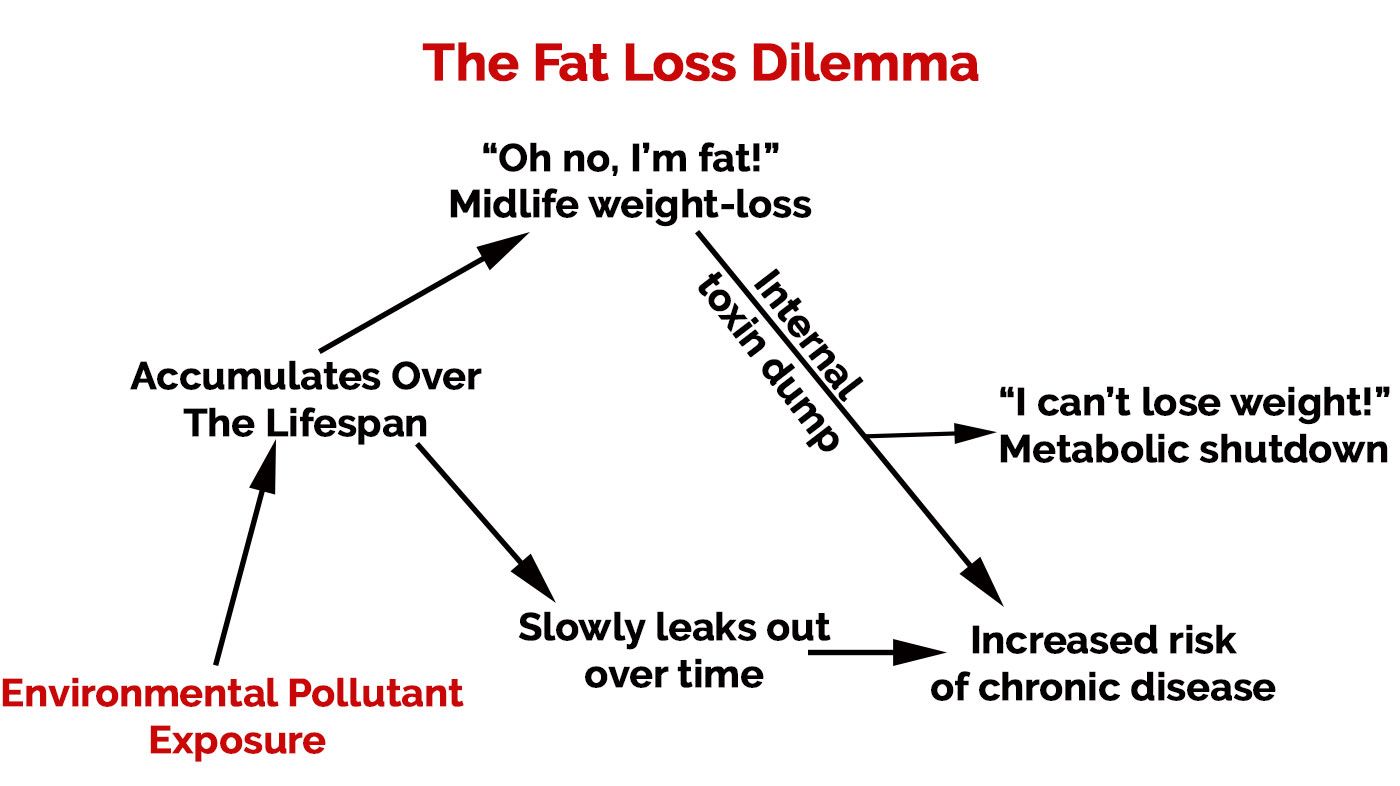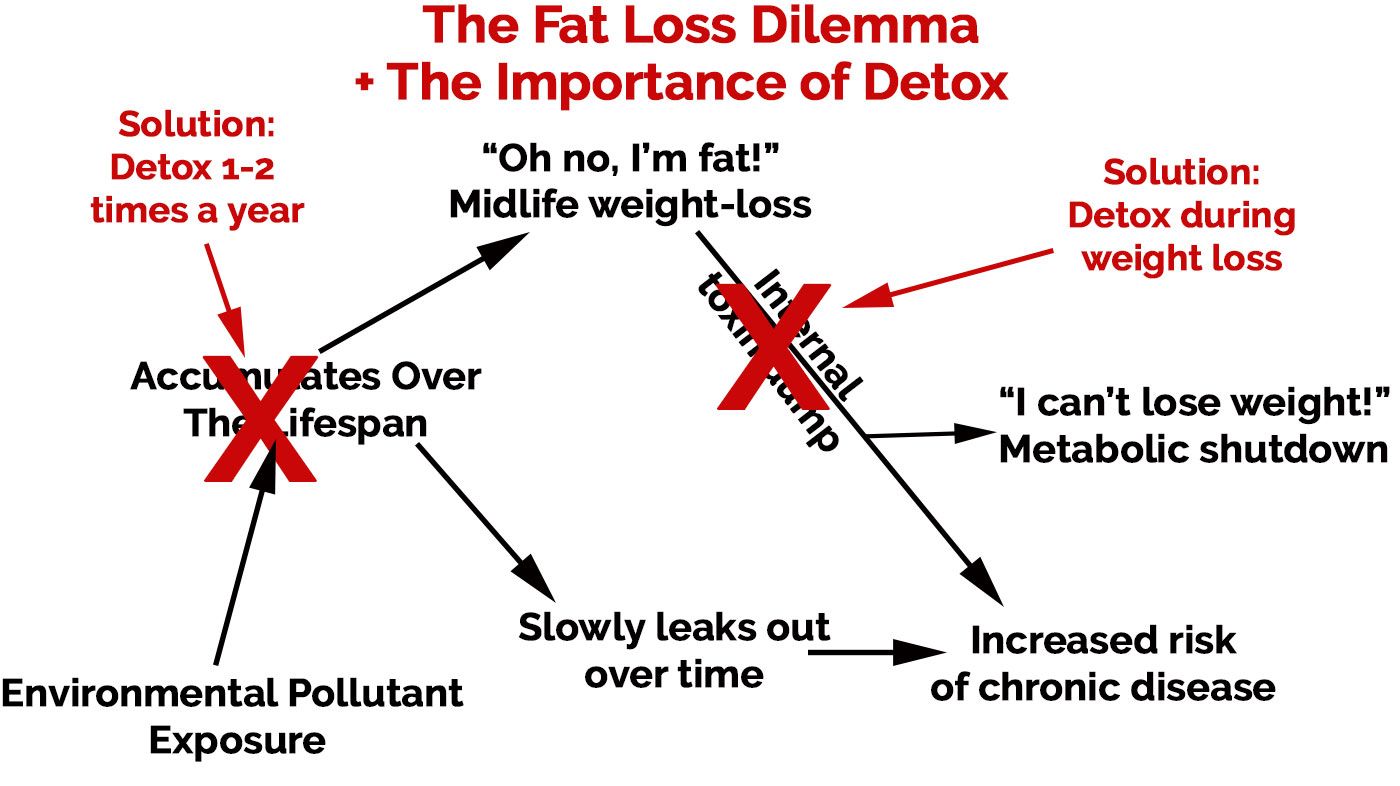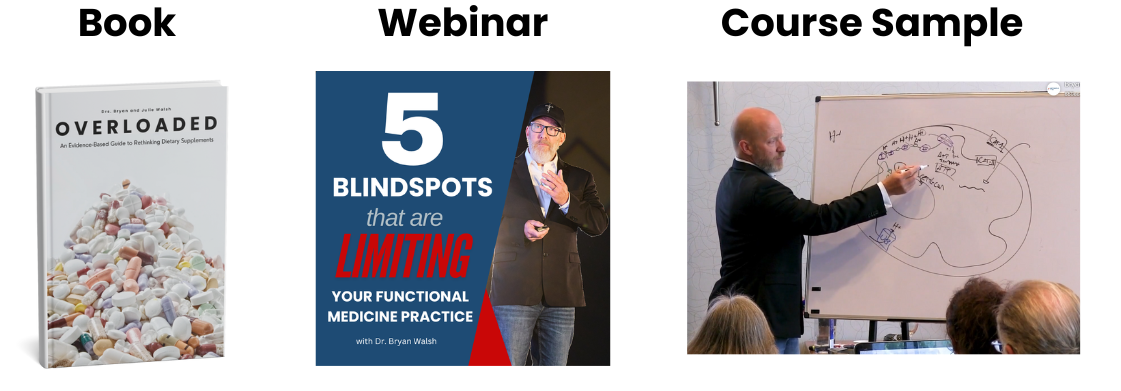The Fat Loss Dilemma (+ The Importance of Detox)
Feb 2
/
Drs. Bryan & Julie Walsh
Write your awesome label here.
According to research, losing weight in midlife might not be such a good idea, as it is associated with an increased risk of dementia, cardiovascular mortality, and all-cause mortality, just to name a few.
“But wait,” some people say, “I thought being overweight is bad and fat loss is good!?” Exactly.
Weight loss appears to be a double-edged sword. On the one hand, we're told that being overweight is healthy, but on the other hand, some research suggests that midlife weight loss might also be unhealthy. This is why we are calling this The Fat Loss Dilemma.
But first, let’s get a few things straight.
Being overweight, or obese, clearly has negative health consequences and according to research, losing weight is generally considered to be a health-promoting thing to do. Better weight management is associated with multiple positive outcomes such as better glucose and lipid regulation, blood pressure reduction, and reduced risk of chronic disease.
However, there appears to be more to the weight loss story, which is something practitioners need to consider when helping patients and clients lose weight. Fat loss may be silently making some people more unhealthy down the road.
“But wait,” some people say, “I thought being overweight is bad and fat loss is good!?” Exactly.
Weight loss appears to be a double-edged sword. On the one hand, we're told that being overweight is healthy, but on the other hand, some research suggests that midlife weight loss might also be unhealthy. This is why we are calling this The Fat Loss Dilemma.
But first, let’s get a few things straight.
Being overweight, or obese, clearly has negative health consequences and according to research, losing weight is generally considered to be a health-promoting thing to do. Better weight management is associated with multiple positive outcomes such as better glucose and lipid regulation, blood pressure reduction, and reduced risk of chronic disease.
However, there appears to be more to the weight loss story, which is something practitioners need to consider when helping patients and clients lose weight. Fat loss may be silently making some people more unhealthy down the road.
The Leaky Faucet
It turns out that we all have exposure to environmental chemicals, and they get stored inside of our bodies, mostly in adipose tissue and fatty organs. Because these pesky pollutants are so difficult to get rid of, they end up accumulating, which is one reason why age is a primary determinant of environmental pollutant concentration in humans.
When we have toxins stored inside of our fat, they slowly leak out due to a concentration gradient. In other words, if there are more environmental pollutants in our fat, and less in the surrounding fluid, they will leak out, causing chronic low-dose exposure to these toxicants. According to research, low dose exposure to environmental pollutants is enough to cause damage, including contributing to endocrine dysfunction, weight gain, and even obesity.
However, when you consider that we have TWO sources of toxins - low dose exposure from the outside world AND chronic low-dose exposure from internal storage - you can see why environmental pollutants pose such a problem.
The Gushing Faucet
As we just said, fat cells are slowly releasing environmental pollutants at a steady-state all the time. However, fat cells can also rapidly release their contents, too. This occurs during lipolysis, or when fats are being broken down and liberated, which of course is what most people are after when they are trying to lose weight. In just about every study we've looked at - and we've read a lot of them - anytime an animal or human reduces calories, xenobiotic levels go up in the blood, and sometimes by a lot.
This is one of the reasons why midlife weight loss might be so detrimental. When we drastically lower our calories, we get a massive environmental pollutant dump internally and according to some studies, this xenobiotic increase is enough to cause organ damage and increase the risk of chronic disease later in life.
But not only that, there are other studies suggesting that this increase in circulating xenobiotics during low-calorie weight loss is enough to slow down our metabolism, decrease thyroid hormone levels, lower thermogenesis, and decrease fat burning in skeletal muscle. In fact, the higher the circulating levels of xenobiotics go during weight loss, the lower the metabolic rate and thyroid hormones go.

The Imperfect Storm
When you put all of these things together, you can see our concern.
1.
We all have exposure to environmental pollutants.
2.
These environmental pollutants get stored, usually inside fat, or fatty tissues.
3.
This process continues over time until midlife when we start feeling overweight and decide to lose weight.
4.
We diet or lower calories to lose weight, end up dumping stored toxins, which slows down our metabolism in the short term, and potentially contributes to chronic disease long term.
Can you see the problem? Being overweight isn't good, but apparently losing weight isn't good either! This is the dilemma.
But it is a solvable one and there are two strategies to take depending on where your patients and clients are in their life. One, support detoxification regularly to reduce the chemical accumulation on the body that occurs with age. According to the scientific literature, there are evidence-based ways of increasing the excretion of stored xenobiotics, effectively reducing their half-life in our bodies, and decreasing their accumulation.

Two, ANYTIME one of your clients or patients wants to lose weight, you must support detoxification and excretion of xenobiotics. In the short-term, this might make weight loss more effective, and in the long-term, it may make it safer for them and better for their health.
Get Free Functional Medicine Education
Thank you!
Policy Pages
Join our mailing list
Get updates and special offers right in your mailbox.
Thank you!
Learn the PRAL Score of 30 Common Foods
(Based on Portion Sizes)
And get started evaluating your diet today!
Enter your email address below to subscribe to our mailing list and get the guide free!
Thank you!
Grab our free Reactive Hypoglycemia Playbook
Enter your email address below to subscribe to our mailing list and get the guide free!
Thank you!
See Inside the Program
Fill in your information below and we'll give you access to a free inside look into the entire program.
Thank you!
Get Free Stuff!

Fill in your information below and we'll give you our 100+ page eBook "Overloaded", our one hour "State of the Industry" webinar, and a sneak peek into one of our courses.
